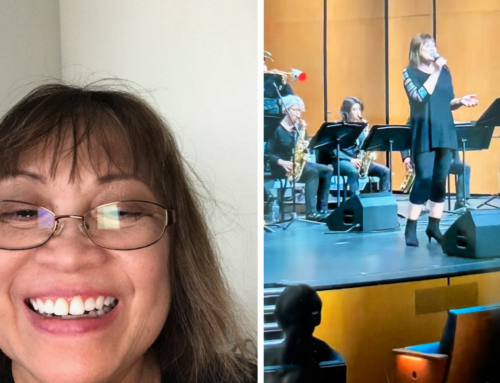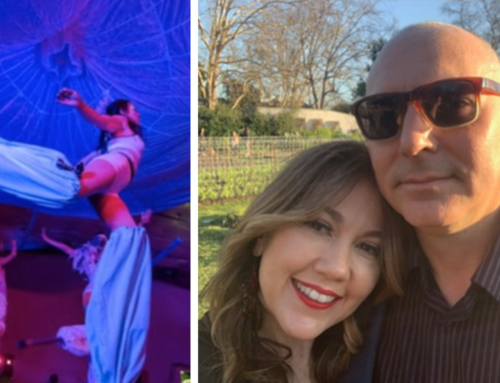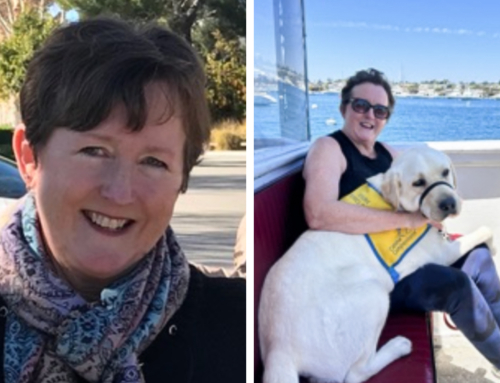“I went in for my yearly physical and never thought for a second that anything would be wrong. I’m not a typical candidate for breast cancer nor do I have breast cancer anywhere in my family history. After my mammogram, I received a call that something was suspicious, and they wanted me to come in for an ultrasound. I had a biopsy and received a diagnosis of DCIS.”
Heather is 67 and has enjoyed her career as a hairdresser for the last 47 years. She and her husband were married over 40 years and did a lot of traveling and stayed active. Both were avid runners and hikers. In fact, they hiked to base camp at Mount Everest about 5 years ago. At 62, Heather was diagnosed with a prolapsed heart valve that required open heart surgery. Two weeks after her surgery, her husband was diagnosed with prostate cancer that had spread to his bones. Even though he was current on exams, he had an aggressive form of prostate cancer and lived only a year after his diagnosis. So, for Heather, a recent diagnosis of ductal carcinoma in situ (DCIS) was an unanticipated and unwelcomed surprise.
“I went in for my yearly physical and never thought for a second that anything would be wrong. I’m not a typical candidate for breast cancer nor do I have breast cancer anywhere in my family history. After my mammogram, I received a call that something was suspicious, and they wanted me to come in for an ultrasound. I had a biopsy and a received a diagnosis of DCIS (in left breast).”
“I was speaking with a friend who told me about DCISionRT. She suggested that I speak with Dede, who is a registered nurse and PreludeDx’s patient advocate. Dede explained that DCISionRT uses my own tumor biology to determine my risk of recurrence, as well as my individual benefit of radiation therapy. My doctor was happy to release my biopsy sample to PreludeDx for testing. Unfortunately, my overall Decision Score was 7.3 out of 10, which is considered high risk. And my 10-year total risk of recurrence for both DCIS and invasive was 31% with breast conserving surgery only and 9% with breast conserving surgery with radiation.”
“My doctor referred me to a breast surgeon and that encounter was unpleasant. She told me that she couldn’t save my nipple during surgery and that I must have radiation, which I didn’t want to do because of my heart valve repair. I felt like she was just treating me as a one size fits all and not listening to my concerns. So, at that point I resigned myself to have a mastectomy, especially to avoid radiation on the same side of my chest as my repaired heart valve.”
“During a conversation with another friend, she suggested that I contact her breast surgeon at Cedar Sinai. That was a much better experience. The surgeon listened to my concerns and together we determined a treatment plan. We moved forward with the breast conserving surgery at the beginning of August. I arrived at 5:00 am and was home by noon. When I went back the following week, the surgeon told me that ‘my margins were clear, and he didn’t think that I needed to do radiation’. He also recommended that I reduce my Tamoxifen dose.”
“I am going to meet with the radiation oncologist next week, but I don’t believe she will change my mind about radiation. This is a decision that I must make based on the information that I have and what I believe is right for me. I’m not ruling radiation out in the future if it is necessary. But I’m not going to live in fear.”
“My advice for other DCIS patients is get a second opinion. It is really inconvenient. Well, be inconvenienced. I would literally be disfigured right now if I hadn’t sought out a second opinion. Also, ask questions and utilize the technology available to you. Be sure to understand your particular type of cancer and treatment options. At the end of the day, you must make a decision that is right for you, and you are the one that must be confident in the decision.”






